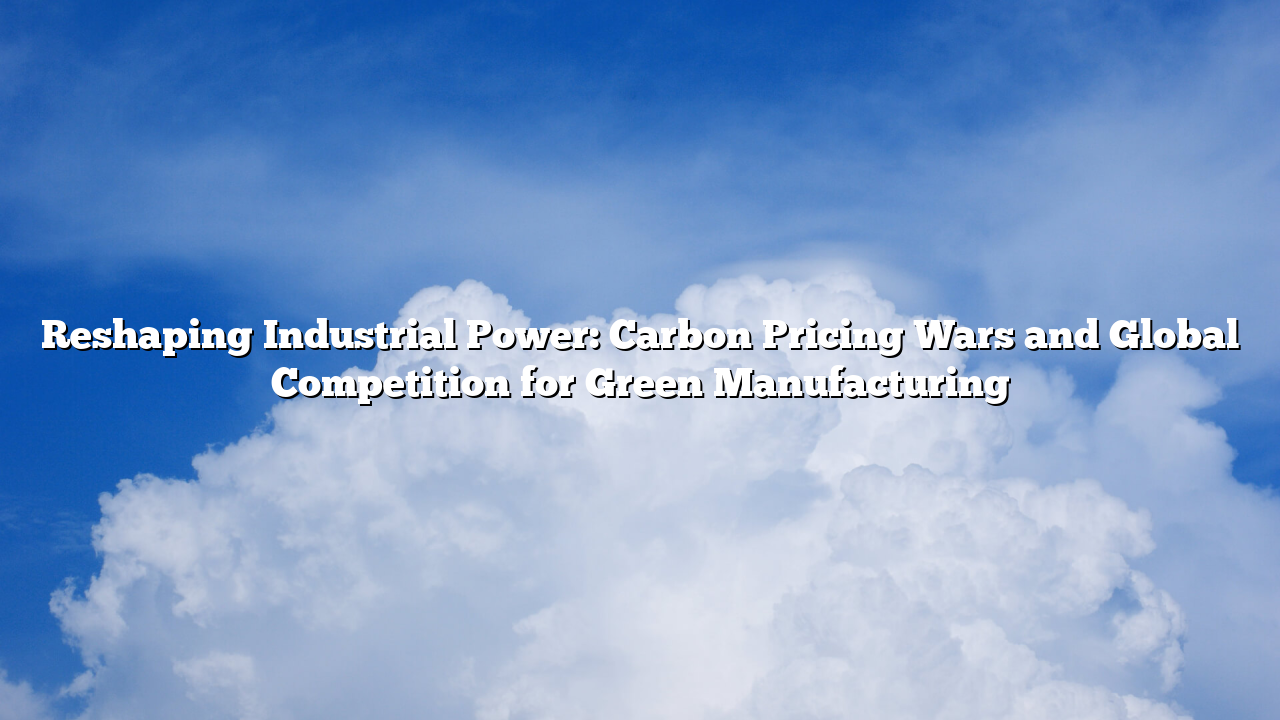decarbonization has structurally shifted into geoeconomic industrial competition
The political economy of decarbonization is no longer regulatory moralism or climate diplomacy narrative performance. It is industrial power competition Pokemon787 login disguised as sustainability discourse. Carbon pricing regimes, border adjustment mechanisms, clean tech subsidies, green industrial credits, and green export financing have become weapons of competitive industrial strategy. Europe’s CBAM is not climate virtue — it is industrial defense infrastructure. America’s IRA is not social climate reform — it is industrial base restoration. China’s green manufacturing machine is not environmental mission — it is a national industrial surplus maximization system. The green transition is the new space race. But it is fought through carbon rulesets, not rockets.
Investors now treat carbon price as a geopolitical variable, not an externality cost. It determines manufacturing relocation arbitrage, supply chain jurisdiction routing, and export advantage vectors. States that can deploy green energy fast become states that can deploy industry fast. Cheap clean baseload is becoming manufacturing dominant advantage. In old political economy, labor cost determined industrial migration. In new political economy, emissions-adjusted energy cost determines industrial migration. This is the structural pivot.
This means the future balance of power is shaped by who can fund green heavy-industry scaling faster — steel, cement, ammonia, shipping, batteries, long-duration storage, nuclear, and green hydrogen. These sectors are capital intensive, technology uncertain, and require state fiscal underwriting. This is not an ESG theme. This is sovereign fiscal architecture. The decarbonization transition becomes a public balance sheet competition.
The West is rediscovering dirigisme not because ideology changed — but because without state-led capital formation these industrial sectors cannot scale in time. Private capital demands certainty premium. It demands risk protection. It demands long term credit default safety net. The only actor that can absorb this is the state.
So the macro thesis: climate is becoming industrial power. Climate tech is national power multipliers. Carbon rulesets are market-shaping instruments. This is a political economy conflict disguised as environmental cooperation. The consequences are massive: the countries that win the green industrial race will not just decarbonize — they will dominate 21st century export markets.
This is the new industrial mercantilism era. Green mercantilism. Climate ideology is merely the narrative skin. Underneath it is geoeconomic ambition at scale.
